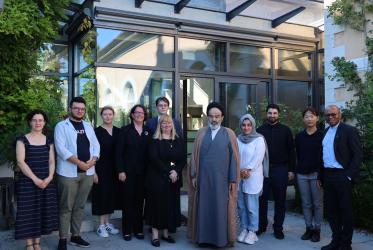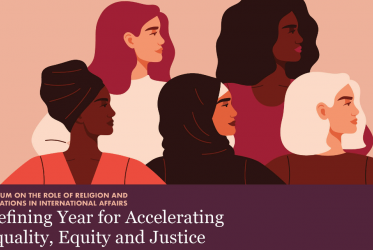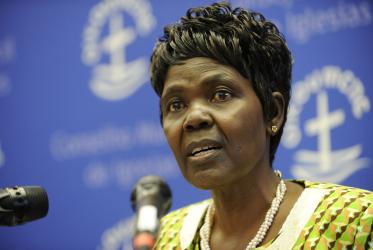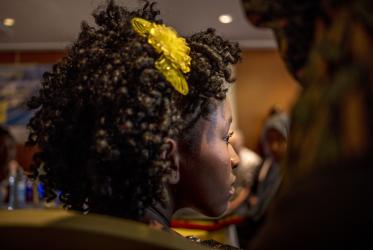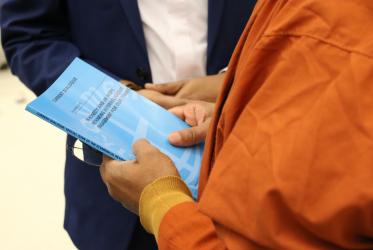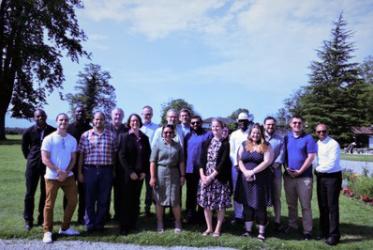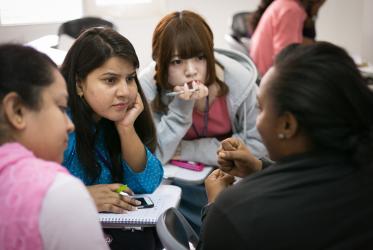Displaying 1 - 20 of 36
Dr Abuom reflects on women of faith as healers of creation
05 October 2021
South Sudan Church leaders welcome new cabinet
15 March 2020
Festivities and dialogue launch new WCC journal
07 February 2020
Bossey gathers students for interreligious dialogue
02 July 2019
#WCC70: Nathan Söderblom, ecumenical pioneer
29 August 2018
Pope Francis at the World Council of Churches
31 May 2018
African women embark on pilgrimage in Burundi
29 November 2017
WCC students study what makes a peace communicator
18 July 2017
Women in development create space for hope in Egypt
15 June 2017
